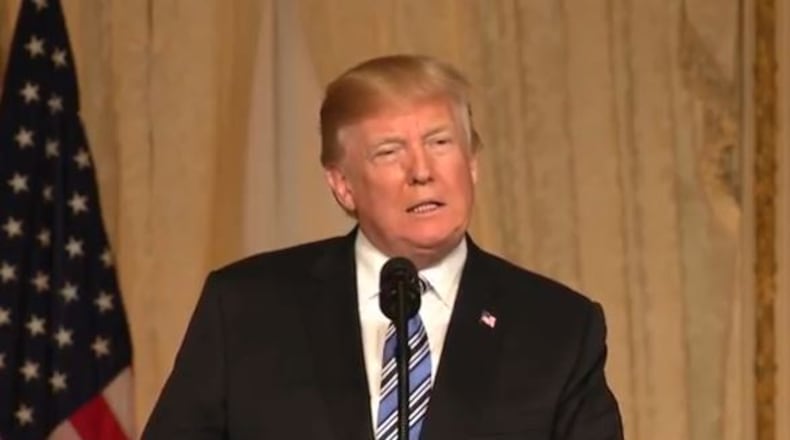A day after President Donald Trump demanded an investigation into how the FBI dealt with investigations during the 2016 campaign, the White House accepted a plan from Deputy Attorney General Rod Rosenstein to expand an ongoing review of the probe into Russian interference in the elections, and how it touched on the Trump Campaign.
"Based on the meeting with the President, the Department of Justice has asked the Inspector General to expand its current investigation to include any irregularities with the Federal Bureau of Investigation’s or the Department of Justice’s tactics concerning the Trump Campaign," read a statement issued by the White House.
"It was also agreed that White House Chief of Staff Kelly will immediately set up a meeting with the FBI, DOJ, and DNI together with Congressional Leaders to review highly classified and other information they have requested," the statement added, referring to an ongoing battle between Republicans in Congress and the feds for documents about the Russia probe.
Credit: Jamie Dupree
Credit: Jamie Dupree
The outcome of the meeting between Mr. Trump, the Deputy Attorney General, the FBI Director, and the Director of National Intelligence - which was not listed on the President's public schedule - was less explosive than what President Trump had seemingly threatened on Sunday, when he said he would demand a full investigation into whether the feds had "infiltrated or surveilled the Trump Campaign for Political Purposes."
Mr. Trump and Congressional Republicans have been playing up the issue in recent days, arguing that initial FBI efforts to find out what Russia was doing with relation to the Trump Campaign, was actually an effort to undermine Mr. Trump's bid for the White House.
But Democrats say what's going on now is an effort by Mr. Trump and his allies in the Congress to undermine the current investigation, by allowing the President's lawyers to see what evidence the Special Counsel's office - and maybe U.S. Intelligence - had been able to gather during the 2016 campaign.
The Monday meeting at the White House came as Republicans stepped up demands for documents about the investigation, as Sen. Charles Grassley (R-IA), asked the Justice Department for information on contacts between officials and former British intelligence agent Christopher Steele, who put together a controversial 'dossier' on the President, funded by Democratic sources.
In a letter to Rosenstein, Grassley zeroed in Monday on Associate Deputy Attorney General Bruce Ohr, and his contacts with Steele.
"Accordingly, please provide all records related to Mr. Ohr's communications about these matters, including: (1) emails from Mr. Ohr's personal and work accounts, (2) phone logs, (3) handwritten notes, and (4) text messages from personal and work accounts," Grassley wrote in a letter.
About the Author



